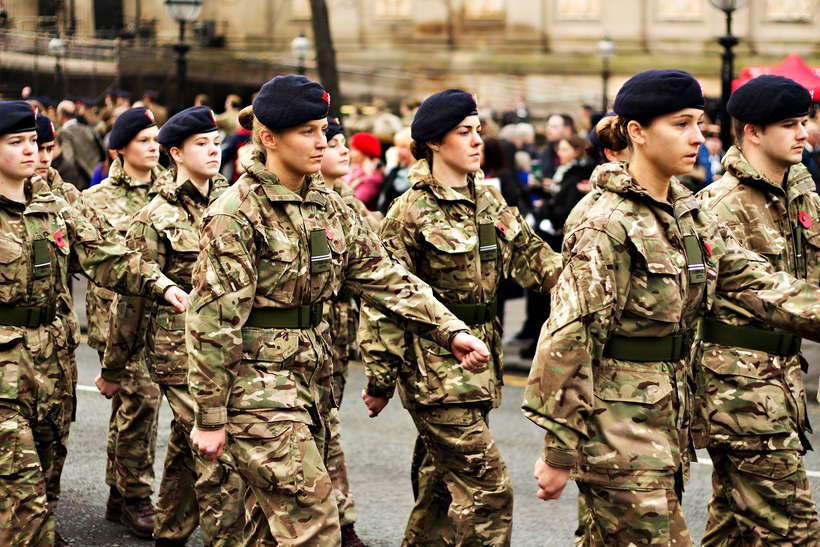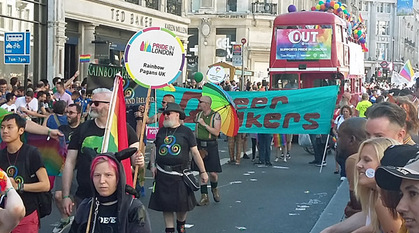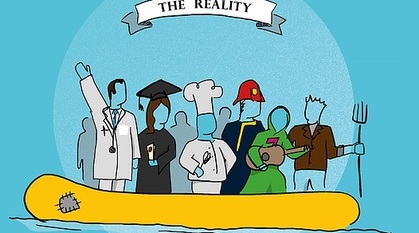Challenging armed forces visits to schools
Thanks to more than three years of campaigning work, visits from the armed forces to schools in Scotland are coming under greater scrutiny says Mairi Campbell-Jack.

On 4 July I was awoken by my alarm at 4:45am so I could check the Scottish Parliament website. While I have a keen interest in politics, I also enjoy having a regular sleep pattern. I try to reserve this kind of sleep disruption only for elections or referendums.
On this occasion however I wanted to see something different: a new 33-page report focusing on armed forces recruitment in Scottish state schools. It had been commissioned thanks to a joint petition from Quakers in Scotland and ForcesWatch and was the culmination of over three and a half years of work.
Who has influence in the classroom?
The petition called on the Scottish government to ensure that armed forces visits to schools were met with “greater scrutiny" as well as “consultation with parents and guardians". With no clear guidance around these visits there is a risk that the education system can be used to market an armed forces career without fully informing young people of the risks involved – something that Quakers in Scotland, concerned about the increasing militarisation of society and our education system, are opposed to.
The Scottish Public Petitions Committee is always incredibly busy as it is one of the primary ways people here can engage with the political system, so for the best chance of success it was vital the petition was well argued and had plenty of supporting evidence. Prior to its submission in 2016 we spent a year researching, discovering that over four-fifths of state secondary schools in Scotland were visited by the armed forces in a two-year period. Afterwards, we took part in follow up hearings and associated media coverage.
Combined voices
During this process it was good to learn how many people and organisations are supportive of this kind of work. It can often feel like Quakers are a small group of people trying to make a very large point. I found out that there were many small groups trying to make this same point, and our combined voices became much stronger.
Support came from a number of different areas: from health professionals (Medact) and scientists (Scientists for Global Responsibility) to children's charities (Together Scotland) as well as the Scottish Commissioner for Children and Young People and the youth wing of the Scottish National Party.
When I finally saw the committee's report I felt pleased and relieved. During the process it didn't always look as though we would make it to this stage, and every step we take forward in this discussion I consider a win. The report made a number of recommendations, including conducting a child rights and wellbeing assessment on whether the content of visits is appropriate and balanced, and that data about the visits be made publicly available by the Ministry of Defence.
While this marks a real milestone, it is not the end of the story. In August the Scottish government issued an underwhelming statement on the report, promising only a “consideration" of the recommendations. However the Petitions Committee process is balanced, and we have a chance to respond. Myself and ForcesWatch will be submitting our thoughts this September, and hope the committee will consider some further ideas in response to the Scottish Government.


